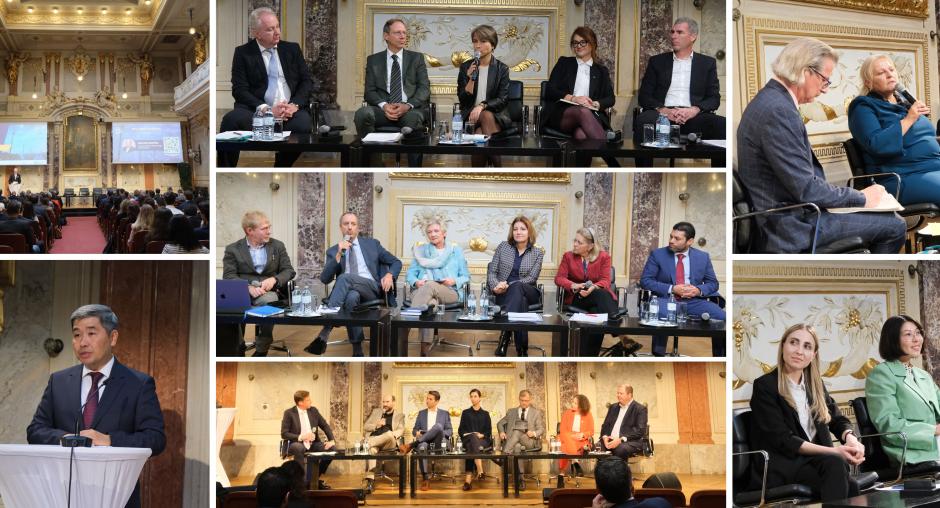Strengthening energy security amid geopolitical shifts and climate challenges in focus at the 7th Vienna Energy Security Dialogue

The pressing challenge of managing energy systems with wise foresight and balancing immediate energy security concerns with long term climate and energy goals was at the core of this year’s edition of the Vienna Energy Security Dialogue. Titled “Energy security in the long run: managing energy systems with wise foresight”, the event took place on 8 October in partnership with the World Energy Council (WEC) Austria, the Federation of Austrian Industries, and Ernst and Young Austria.
Over 220 policymakers, scientists, academia, civil society and industry representatives gathered to discuss the increasing complexities of global energy security against major geopolitical shifts and the growing challenges posed by climate change. Together, they explored insights and strategies to address these challenges, offering an well-rounded perspective on managing energy systems for a sustainable and resilient energy future.
“The questions and energy security challenges we are facing are vast and complex, and they cannot be addressed in isolation,” said Ambassador Bakyt Dzhusupov, Co-ordinator of OSCE Economic and Environmental Activities. “This calls for the urgent need to understand how to strike the right balance between risks and opportunities, as well as to harmonize short-term energy security and overall societal development needs with long-term climate and energy goals,” he added.
Since its inception in autumn 2018, the Vienna Energy Security Dialogue has become a leading annual international forum for energy stakeholders to share experiences and ideas on building safe, affordable, efficient and environmentally sound energy systems.
Gerhard Gamperl, Secretary General of WEC Austria, highlighted the increasing need for a long-term vision that incorporates foresight, resilience, and adaptability. “This all requires collaboration across sectors and borders, sharing knowledge, and leveraging collective expertise to foresee potential challenges and devise proactive strategies,” he said.
Throughout the event, experts shared their insights into the current energy landscape and the main challenges and opportunities that lie ahead.
Speakers covered a range of topics, including the geopolitics of stable supply, the oil and gas sector, balancing power supply and demand, regulatory frameworks for a clean transition, climate risk considerations for energy system planning, green financing and insuring, and implementing digital and data driven solutions to enhance energy security in the long run.
Additionally, the event included an interactive panel on energy education, efficiency and inclusivity for enhanced energy security that welcomed two Young Energy Professionals of WEC Austria and two mentees of OSCE-GWNET Mentoring Program on Empowering Central Asian Women in Renewable Energy to share their experience on engaging youth and women in the energy sector, as well as empowering communities in the energy transition.
In closing, Ms. Sylvie Goyet, Head of Environmental Activities at the OSCE, said that “the dialogue at the event underscored the central role of energy in our overall security landscape and therefore the critical need to develop energy systems within a security and efficiency perspective.”
For additional information, please visit 7th Vienna Energy Security Dialogue: Energy security in the long run: managing energy systems with wise foresight
